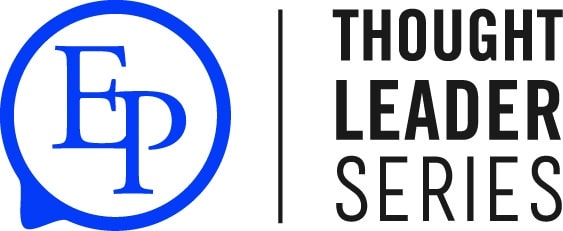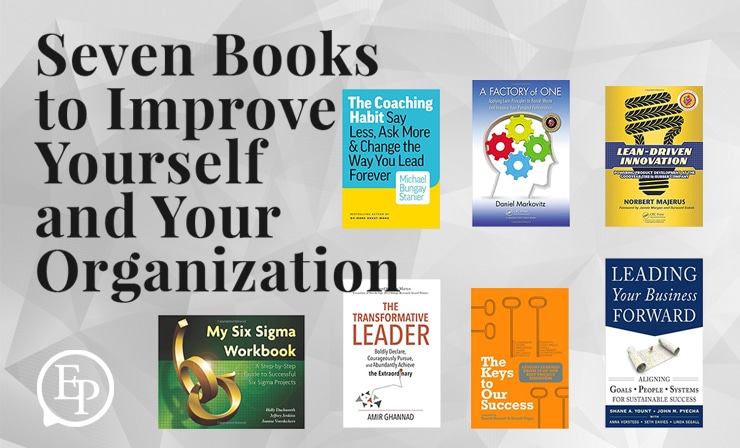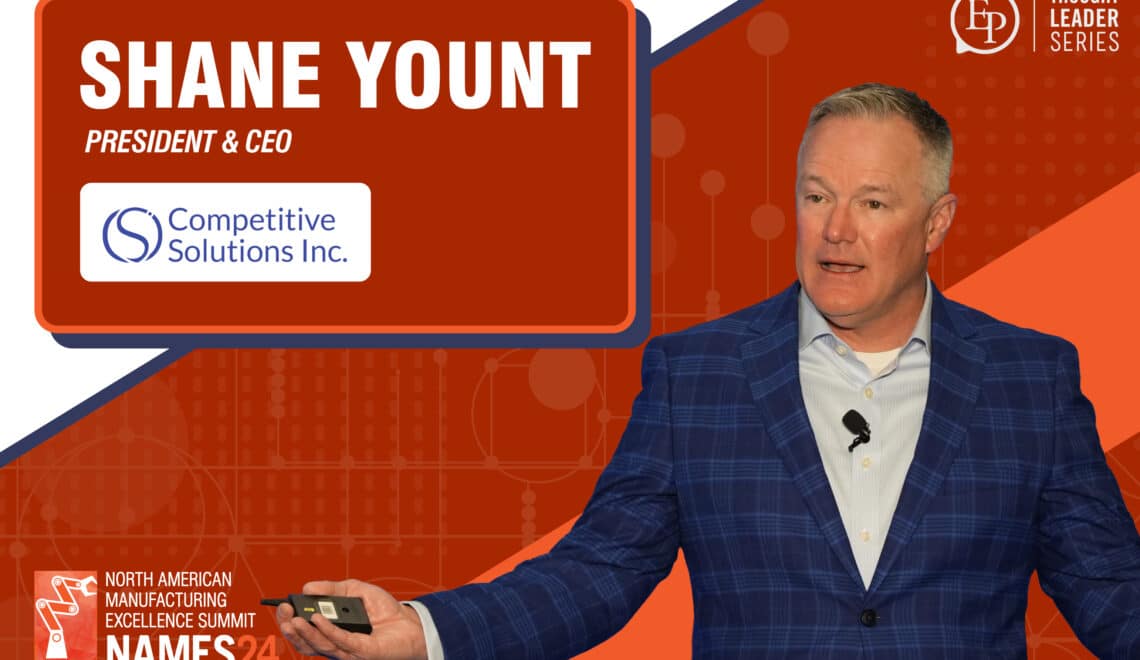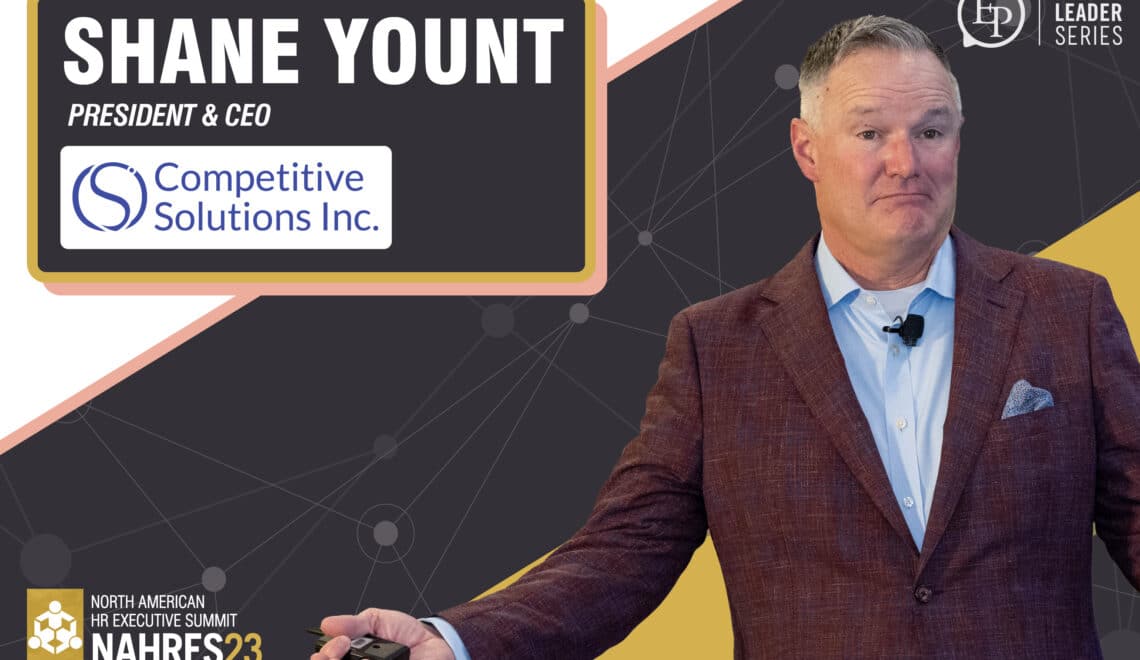While still in its early days, the EP Thought Leader Series has already spoken with David Barrett, Amir Ghannad, and Norbert Majerus about their ideas and insights into how leadership drives positive outcomes. While all of those interviews are well-worth a read, they are each just a piece of a larger conversation: How do books about business help businesses succeed?
I have had the great good fortune to speak with a number of industry leaders about their working lives, and one of the common threads that connects these men and women together is a love of learning and sharing with others. I know more than one lean manufacturing expert who have incorporated book clubs into their ongoing efforts to build a continuous improvement culture. I know quite a few who have gone on to write their own books as well. For this week’s contribution to the EP Thought Leader Series, I thought it would be interesting to showcase some of the books recommended to me over the years.
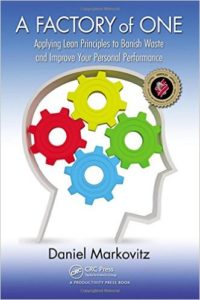
by Daniel Markovitz
Why Are We Recommending It?
While the content of business books tends to remain relevant and useful for years, there are not too many that are immediately identifiable as classics from the first days of their publication. A Factory of One is such a book. A winner of the 2013 Shingo Research and Professional Publication Award, Daniel Markovitz has written possibly the definitive book about applying lean manufacturing principles to improve the performance of individuals. Through Daniel’s easy prose, the elimination of waste and the quest for continuous improvement makes a natural transition from an organization-wide journey into something immediately relevant to anyone and everyone on a personal level.
As an avid reader, I often ask people what they are reading or what I should keep an eye out for if I wanted to understand something better. When I’m talking with people who are passionate about Lean Thinking, A Factory of One has certainly been the top recommendation in the last couple of years. If the EP Thought Leader Series is going to have a recommended reading list, this is an excellent place to start!
Here’s the Amazon.com listing for more information.
Here’s the book’s website at www.afactoryofone.com
Here’s the author’s website at www.timebackmanagement.com
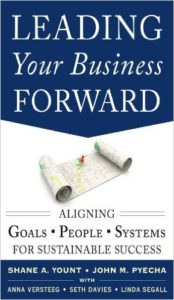
by John Pyecha, Shane Yount, Seth Davies, and Anna Versteeg
Why Are We Recommending It?
This book is on our list for a very different reason than A Factory of One: I have had the pleasure of working with three of the four authors of this book several times over the last five years or so, and if I am going to put together a reading list, I would be remiss not to include something from the team at Competitive Solutions. Leading Your Business Forward is the fourth book by John Pyecha, Shane Yount, Seth Davies, and Anna Versteeg, and all four are variations on a theme that these four communicate brilliantly in both print and at regular speaking engagements all over the world: Organizations built around process-based leadership that communicate and self-evaluate clearly and honestly on a regular basis achieve their goals. It sounds easy, but there is a tremendous amount of work that goes into transforming a philosophy into a reality.
I could go on at some length about this, but I would not be able to hold a candle to the passionate delivery or clarity of purpose you would get from the people who have dedicated their working lives to these ideas. I heartily recommend giving the book and the team a look!
Here’s the Amazon.com listing for more information.
Here’s the authors’ website: http://www.processbasedleadership.com
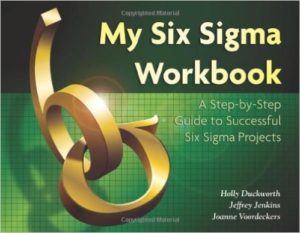
by Holly Alison Duckworth, Jeffrey Jenkins, Joanne Voordeckers
Why Are We Recommending It?
There are hundreds of different types of manufacturing, but by and large all manufacturers are either discrete manufacturers or process manufacturers. There are larger definitions, of course, but generally speaking discrete manufacturers make a product out of parts and can be disassembled if need be, like a car or an airplane, whereas process manufacturers make things that cannot be returned to their base components upon completion, like orange juice or steel. Most books about improving manufacturing operations tend to draw their lessons from discrete manufacturing case studies, which rather leaves all the process manufacturers scratching their heads and saying, “How does that apply to me?” Holly Duckworth is the first person I spoke to who had made a conscious and concerted effort to transfer and translate the best practices of lean thinking from discrete manufacturers and translate them into something that would work in a process manufacturing environment.
Now this book is not specifically for discrete or process manufacturers, but the fact that is universally useful to both is a remarkable and deliberate thing. Drawing on her experience in both discrete and process manufacturing environments as well as over 20,000 hours of classroom instructor as an ASQ Certified Quality Manager and ASQ Certified Six Sigma Black Belt, Holly has put together a clear and useful (and clearly useful!) book that has resonated with its intended audience. I have mentioned this book to a few people I know in process manufacturing, and two of them followed up to say how much they appreciated my recommendation. I am happy to include this book on our list, and I encourage everyone to check out Holly’s other books as well.
Here’s the Amazon.com listing for more information.
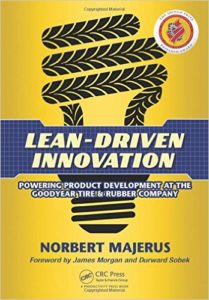
by Norbert Majerus
Why Are We Recommending It?
Another one of our first interviews for this series, we are delighted to say Norbert Majerus has gone on to win a 2016 Shingo Research Award for his excellent book that he finally got around to writing while recovering from a skiing injury. This book more so than any other on this list is based on a single case study, and what a case study! The Goodyear Tire & Rubber Company embarked on a remarkable journey in 2005 to bring lean thinking to its product development processes. The results were extraordinary, As Norbert explains in great detail and an engaging manner.
As this testimonial from the Shingo announcement explains, “It is rare, indeed, for someone with so much real-world experience improving one company’s systems of product development to divulge such a public gift as this book delivers,” says Jeff Rogers, engineering manager of lean product development at Parker Hannifin Corporation, Parker Aerospace. Rogers continues, “I appreciate the candid story of Norbert’s leadership journey at Goodyear to bring lean thinking into the product development space. Most remarkably, he uses his story to teach others, like me, the principled way to do it, too. Even having a decade of my own lean product development learning and experience, I dog-eared, highlighted, and double-underlined practical and actionable content in every chapter. Read it slowly, read it twice…it is seasoned advice. Thanks to Goodyear and Norbert I’ll be accelerating with better traction.”
Here’s the Amazon.com listing for more information.
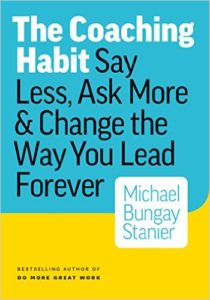
by Michael Bungay Stanier
I mentioned at the top of my list that there are common threads that connect the executives the Executive Platforms team interact with in our work. A passion for sharing and learning is definitely one, but entwined with that thread is a commitment to coaching and mentoring. Leaders by their very nature are working with people to achieve a common goal. Most leaders start off leading by example, taking on the hardest assignments, working hard to be the best.
Those are admirable qualities, of course, but they are about individual achievement, not improving a team. Is the head of a company better than every one of the employees working at that company? Of course not. At some point, leaders need to transition away from being the best at every role and begin to build up and inspire others on their own journey towards success. Getting people excited and engaged is one of the must-have competencies of a leader in the workplace, and Michael Bungay Stainer’s book does a wonderful job of walking through the Who, What, Where, When, Why, and How of that job.
Here’s the Amazon.com listing for more information.
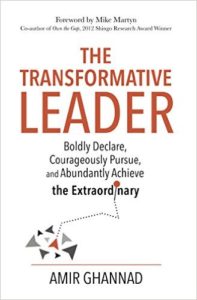
by Amir Ghannad
Why Are We Recommending It?
As I mentioned at the top, we interviewed Amir as one of our first entries into the EP Thought Leader Series, so it only makes sense to include his book in our first reading list!
Amir Ghannad is among the best, brightest, friendliest, and most enthusiastic public speakers and authors I have ever had the pleasure of working with. Amir’s dedication to personal and professional self-improvement as a vehicle to drive successful outcomes is both inspirational and empowering. His ideas about leadership as the root cause for achieving goals really do get to the heart of how people and organizations think, how they change, and how they grow. He’s a clear communicator with a can-do attitude who loves what he does and is happy to share what is working for him with others. I expect everyone reading this book will come away with an endorphin high: Amir’s positivity is infectious.
Here’s the Amazon.com listing for more information.
Here’s the author’s website: http://www.amirghannad.com
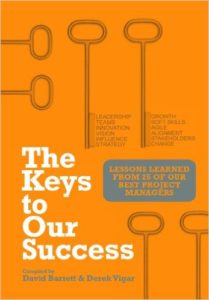
by David Barrett and Derek Vigar
Why Are We Recommending It?
Yet another of our early interviews for this EP Thought Leader Series, David Barrett is a departure from some of the other books on this list in that he is not coming from a manufacturing background or writing specifically for a manufacturing audience. Instead, David and his writing partner Derek Vigar set out to engage with 25 experienced project managers from all sorts of different public- and private-sector organizations, asking each of them for just one insight that they bring to their work on a daily basis that makes the difference for them as experienced professionals. While the other books on this list revolve around a central thesis, The Keys to Our Success offer more than two dozen different takeaways from a diverse crowd. No one story takes more than ten minutes to read and understand, but as a collective whole the book offers a wealth of ideas and examples that are specifically chosen to be universally applicable to the challenges and opportunities leaders face in the projects, regardless of the specifics.
Here’s the Amazon.com listing for more information:
Here’s the author’s website at http://davidbarrett.ca
